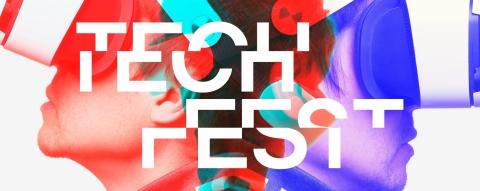How online education is shaping the future of learning

Education is evolving rapidly, reshaping how we learn, connect and grow. The traditional classroom model is no longer the sole path to gaining knowledge or advancing careers. Online education has emerged as a transformative alternative, offering flexibility, accessibility and cutting-edge tools tailored to the demands of a modern world.
While the shift to online learning gained momentum during the COVID-19 pandemic, its rise was already underway. Today, online education is redefining possibilities for learners everywhere, making high-quality, engaging and flexible education more accessible than ever. Here’s why the future of education is 100% online—and why it’s worth exploring.
Why online learning works
Flexibility for a busy world
For many, the biggest advantage of online education is its flexibility. Life doesn’t pause for study—especially for working professionals, parents, or anyone managing competing priorities. Online education empowers learners to study on their own terms, adapting learning schedules around work, family or personal commitments.
Whether it’s an early morning session before work or late-night learning after the kids are asleep, online learning makes it possible to fit education into even the busiest lives.
At UTS Online, you’re always supported right through to graduation with our dedicated Student Admissions and Student Success teams, ensuring you have the guidance and resources needed to balance study with work and personal life. This adaptability, combined with ongoing support, makes online learning a powerful and achievable option in today’s fast-paced world.
A cost-effective and accessible way to study
Online education often comes with cost benefits compared to traditional on-campus learning. Without the need for commuting, housing, or campus-related expenses, students save money while gaining access to the same high-quality courses. Additionally, tuition for online programs can sometimes be more affordable, making education accessible to a broader range of learners.
By removing geographical barriers, online education ensures that students from anywhere in the world can access leading institutions and industry-aligned courses without uprooting their lives or careers.
Designed for growth
Unlike traditional classrooms which are limited by physical space, online learning environments can cater to thousands of learners simultaneously, all while maintaining a high standard of quality. This scalability provides students with access to a broader range of resources, diverse course offerings and global networking opportunities.
Incorporating innovation into the learning experience, online programs utilise cutting-edge tools like virtual simulations, interactive modules and dynamic assessments. These resources aren’t just designed to deliver content but to enhance learning outcomes and provide practical, real-world value.
Building future-ready skills
Online education isn’t just about convenience—it’s about preparing you for your future career. Modern careers demand adaptability, critical thinking and specialised skills and online learning is uniquely positioned to meet these needs.
Technology-driven learning
Modern careers demand adaptability, critical thinking and specialised skills—all of which are fostered through online learning. Many courses integrate advanced technologies like AI-driven modules, gamification and virtual labs, providing an engaging and personalised experience.
These tools simulate real-world scenarios, helping students develop the practical skills they need to excel in their fields. From coding exercises to interactive case studies, technology enhances the relevance and effectiveness of learning.
Upskilling and reskilling
Industries are evolving at an unprecedented pace, making upskilling and reskilling essential for career growth. Whether you’re looking to progress in your current profession or transition to a completely new field, online education equips you with the tools and knowledge to stay competitive.
For example, many learners pursue courses in business analytics, digital health, or sustainability—areas that are becoming increasingly vital in today’s job market. Online learning offers the flexibility to explore new opportunities without disrupting your career.
What sets great online programs apart
The most successful online education programs share several key features that ensure students thrive in their studies and careers, including:
User-friendly learning environments
Navigating an online course should feel intuitive and seamless. The best learning environments prioritise user experience, providing easy access to:
- Interactive tutorials and engaging resources.
- Peer collaboration forums and discussion boards.
- Real-time academic tools and practical assessments.
This thoughtful design enables students to focus on learning, not logistics.
At UTS Online, we prioritise student success by continuously innovating our online learning experience without compromising on quality. Many students find the online environment more user-friendly and intuitive than they initially expected.
Here’s an example video showcasing key features and functionalities of our online learning environment, including the tools and resources available to support your studies.
Personalised support systems
Support is essential in any educational journey, and online learning is no exception. At UTS Online, students have access to dedicated Student Success Advisors and subject facilitators—who are often industry professionals—to help navigate challenges. Whether it’s managing your time, tackling academic questions or planning your next career move, the support is there to keep you on track.
Practical, real-world assessments
Online programs move beyond outdated testing methods, favouring authentic assessments that reflect real-world challenges. From creating project proposals to crafting presentations and developing professional portfolios, students graduate with tangible outcomes that demonstrate their skills to future employers.
Common questions about online learning
Absolutely. Degrees earned through online learning carry the same recognition as their on-campus equivalents. In fact, employers often view online graduates as self-motivated, disciplined and tech-savvy—all desirable traits in today’s workplace.
Yes. FEE-HELP is an Australian Government loan scheme that makes online education more accessible by covering tuition fees for eligible students. Available to Australian citizens, certain visa holders and eligible New Zealand citizens, it allows you to study now and repay later through the tax system—only once your income reaches the repayment threshold. With no upfront costs and a simple application process using your tax file number and unique student identifier (USI), FEE-HELP ensures financial flexibility while you invest in your future.
Not at all. While online learning offers flexibility and independence, collaboration is an integral part of the experience. Many programs incorporate discussion forums, peer feedback sessions and networking opportunities to foster a strong sense of community among learners.
At UTS Online, you’re never alone in your study journey. Our dedicated Student Success Advisors (SSAs) provide personalised support, helping you stay connected, motivated and on track from day one to graduation.
Absolutely. Online learning is designed for busy individuals, allowing you to study on your terms without putting your career or personal life on hold.
At UTS Online, flexibility is built into the experience. With asynchronous sessions, you can learn at a time that suits you, whether it's early mornings, late nights, or weekends. Plus, our adapted curriculum means no exams—assessments are structured to fit real-world applications, making study more manageable alongside your commitments.
This ensures you can tailor your workload to fit your lifestyle while gaining a quality education that works for you.
The future of online education
The possibilities for online education are expanding, driven by emerging technologies and global trends. Here’s what the next generation of online learning might look like:
-
Immersive technologies: Virtual reality (VR) and augmented reality (AR) will create interactive, hands-on learning environments for fields like engineering, healthcare and architecture.
-
AI-Powered personalisation: Artificial intelligence will adapt courses to individual learning styles, providing tailored experiences that maximise engagement and retention.
-
Global collaboration: Online education will continue to connect learners and experts worldwide, fostering global perspectives and cross-cultural understanding.
As these advancements unfold, online education will remain at the forefront of innovation, ensuring learners are prepared to meet the challenges of tomorrow’s world.
Real success stories: The power of online education
The transformative impact of online learning is reflected in countless success stories. Consider a tradesman who transitioned into property development, or a nurse who stepped into a leadership role after completing an online degree. These examples highlight the practical, career-enhancing potential of studying online—offering flexibility, real-world relevance and a pathway to professional growth.
Through flexible learning options and industry-aligned courses, individuals from diverse backgrounds have been able to achieve their goals and create meaningful change in their lives.
Your journey starts here
The future of education is online—and it’s more accessible, engaging and impactful than ever. Whether you’re seeking to advance in your current role, explore a new career path, or develop future-ready skills, online learning offers the tools and flexibility to make it possible.
Discover how UTS Online can help you reach your goals. Explore our courses today and shape your future.





